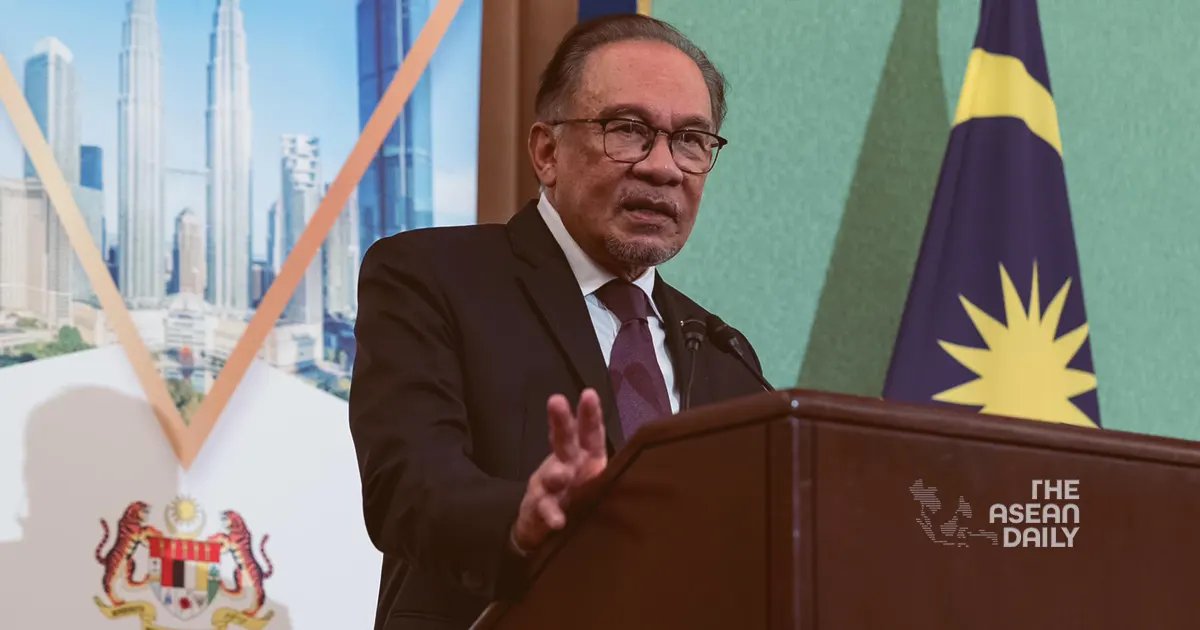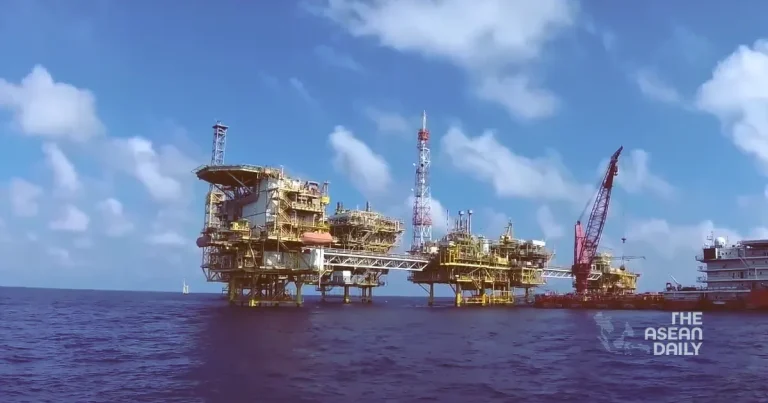12-9-2024 (KUALA LUMPUR) Recent tensions between Malaysia and China over territorial claims in the South China Sea have raised concerns, but experts believe armed conflict remains highly unlikely. While both nations assert their rights in the disputed waters, diplomatic channels and economic ties are expected to prevail over military confrontation.
The latest flare-up occurred when Chinese naval and coast guard vessels were detected within Malaysia’s Exclusive Economic Zone (EEZ) near an oil rig off the coast of Sarawak. Maritime traffic analysis suggested the Royal Malaysian Navy responded by deploying ships to the area, indicating heightened vigilance. This development comes amid growing regional unease, with recent clashes between Chinese and Philippine coast guards further complicating the situation.
Adding to the complexity, a diplomatic note from China’s Ministry of Foreign Affairs to the Malaysian Embassy in Beijing was recently revealed, expressing objections to Malaysian oil exploration activities in areas known to Malaysia as Beting Raja Jarum and Beting Patinggi Ali. These areas fall within what China considers its “nine-dash line” claim over much of the South China Sea.

Malaysian Prime Minister Datuk Seri Anwar Ibrahim has adopted a firm stance, insisting that Malaysia will continue its oil and gas exploration in the South China Sea despite Chinese objections. He emphasised that Malaysia, as a sovereign and independent nation, has the right to determine what is best for itself and its people, including how it establishes diplomatic ties with other countries.
Anwar’s recent comments highlight Malaysia’s desire to maintain good relations with all countries while asserting its territorial rights. He stated that no party should attempt to pressure Malaysia in its foreign relations, noting that the country aims to balance its relationships with various global powers.

The prime minister’s recent working visit to Russia, where he met with President Vladimir Putin, exemplifies this approach. Anwar explained that the meeting was aimed at strengthening Kuala Lumpur’s relationship with Moscow and encouraging Russia to increase its import of palm oil from Malaysia. He drew parallels to Malaysia’s efforts to boost trade with other major palm oil importers like India, China, Egypt, and the Netherlands.
This balanced approach to foreign relations reflects Malaysia’s broader strategy in navigating the complex geopolitical landscape of the South China Sea dispute. While asserting its territorial claims, Malaysia has generally pursued a less confrontational approach compared to some of its neighbours, preferring diplomatic channels and economic cooperation to military posturing.
China, for its part, has consistently maintained its claims over vast swathes of the South China Sea, including areas that overlap with the territorial waters of several Southeast Asian nations. Beijing’s assertion of historical rights, symbolised by the “nine-dash line,” has been a source of tension in the region for years.

However, despite occasional flare-ups and shows of force, China has also demonstrated a willingness to engage in dialogue and economic cooperation with its Southeast Asian neighbours. The country remains a major trading partner for Malaysia and other ASEAN nations, creating a complex web of interdependence that acts as a deterrent to outright conflict.

Experts point out that neither Malaysia nor China has any interest in escalating tensions to the point of military confrontation. The economic costs and diplomatic fallout of such a scenario would be immense for both sides. Instead, both nations are likely to continue their current pattern of asserting claims through presence and diplomatic channels while maintaining economic ties.
Malaysia’s approach to the dispute has been characterised by a combination of quiet diplomacy, selective cooperation, and measured assertions of sovereignty. This strategy allows Malaysia to maintain its claims without overly antagonising China, while still benefiting from economic relations with its larger neighbour.
The broader context of ASEAN-China relations also plays a role in tempering potential conflicts. ASEAN as a bloc has been working towards a Code of Conduct for the South China Sea, which, if successfully negotiated, could provide a framework for managing disputes and preventing escalation.
Furthermore, the international community, particularly the United States, has shown increasing interest in the South China Sea situation. While this adds another layer of complexity to the issue, it also provides additional diplomatic avenues for resolution and potentially acts as a check on more aggressive actions by any party.
It’s worth noting that Malaysia’s oil and gas exploration activities in the disputed areas are crucial for its economy. The country has significant offshore energy resources, and the revenue from these operations contributes substantially to its national income. This economic imperative adds another dimension to Malaysia’s determination to maintain its presence and activities in the contested waters.
China, while objecting to these activities, has thus far limited its response to diplomatic protests and the presence of its vessels in the area. This measured approach suggests a recognition of the delicate balance required to maintain regional stability and economic relationships.
The situation remains fluid, with both countries likely to continue asserting their claims through various means. However, the fundamental dynamics of the relationship between Malaysia and China, characterised by economic interdependence and a mutual desire to avoid outright conflict, are expected to prevent any serious escalation.




